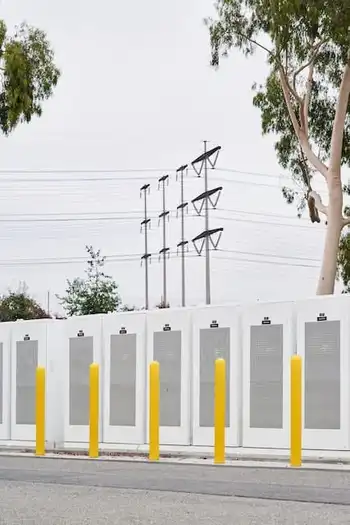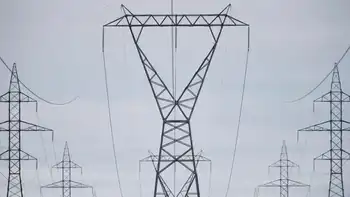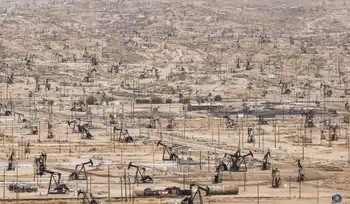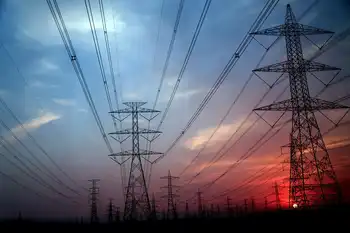China meets energy goals with blackouts
CHINA - Chinese steel mills and mobile phone factories are being idled and thousands of homes in one area are doing without electricity as local governments order power cuts to meet energy-saving targets set by Beijing.
Rolling blackouts and enforced power cuts are affecting key industrial areas. The prosperous eastern city of Taizhou turned off street lights and ordered hotels and shopping malls to cut power use. In Anping County southwest of Beijing, an area known as China's wire-manufacturing capital, thousands of factories and homes have endured daylong blackouts over the past two weeks.
“We can't meet deadlines for some orders and will have to pay penalties,” said Han Hongmai, general manager of Anping's Jintai Metal Wire Co. “At home we can't use the toilet” on blackout days due to lack of power for water pumps, he said.
While the U.S. and Europe struggle with flagging economies, the power outages are symptomatic of China's torrid growth and officials' capricious use of their powers to meet the authoritarian government's goals.
China's economic expansion, which hit 10.3 per cent in the latest quarter, blew holes in government efforts to curb surging energy demand, pollution and emissions of climate-changing greenhouse gases. Beijing told local leaders to clamp down and stepped up pressure by sending inspectors to see the order was carried out.
“You could say local governments are trying to blackmail the central government: If you order me to do something I can't deliver, I will pass on the pressure to ordinary people,” said Yang Ailun, a spokeswoman for Greenpeace China.
The Cabinet planning agency, the National Development and Reform Commission, scolded Anping officials for the household power cuts. The provincial government issued an order to see that all homes have power.
It's not the first time something like this has happened.
In 2007, gasoline shortages disrupted the economy after refiners cut production in response to price controls. The next year, parts of China shivered through blackouts in bitter winter cold after the government froze power prices, prompting utilities to cut expenses by letting coal stockpiles run low.
This year's power cuts began after Beijing announced in August that an energy efficiency campaign suffered a setback as a stimulus-fuelled building boom drove growth in steel, cement and other heavy industry.
Beijing's plans call for cutting energy intensity, or energy used per unit of economic output, by 20 per cent from 2006 levels by this year. The World Bank says China uses up to twice the energy per unit of output as the United States, Japan and other economies. Chinese officials say energy use is 3.4 times the world average.
Energy intensity fell by 14.4 per cent by the end of 2009 after thousands of antiquated steel mills and other factories were forced to close, the government says. But it crept back up by 0.9 per cent in the first half of this year.
Beijing reacted by ordering 2,087 steel and cement mills and other factories with poor environmental controls to close. The Cabinet stepped up pressure on local leaders by sending inspectors to 18 of China's 32 provinces and major regions to enforce efficiency.
“They understand that if they fail to meet this target it could potentially cast doubt not just internationally but domestically about whether China is serious about tackling its emissions,” said Greenpeace's Ms. Yang.
Ms. Yang said environmentalists welcome moves to close antiquated factories because that improves overall efficiency. But she said temporary blanket cuts come at a high social cost and the government should be taking more long-term steps such as changing energy pricing to encourage conservation.
“What they are doing now is relying too much on harsh administrative orders,” she said.
In some ways, the power cuts are backfiring. Mr. Han, the manager in Anping, said his wire factory coped by purchasing its own generator. So it still uses power – but from a source that might be dirtier and less efficient.
Energy is politically sensitive for Beijing, which is trying to clean up the battered Chinese environment and rein in growing demand for imported oil and gas, which it sees as a strategic weakness.
Booming China passed the United States last year as the world's top energy consumer, according to the International Energy Agency – a report that Beijing angrily rejected.
China also is the biggest source of climate-changing greenhouse gases. As a developing country it is not bound by U.N. climate treaties but has pledged to curb emissions growth, though it says the United States and other advanced economies should do more.
Some of China's biggest companies have been hobbled by the campaign, which is cutting production at a time when Beijing needs to create jobs to sustain a rebound from the global crisis.
Baosteel Group, a major steel maker, announced Sept. 1 it was shutting down a 2 million-ton-a-year blast furnace in Ningbo, a port city south of Shanghai.
“The suspension could last over three months, causing a loss of 180,000 tons of steel a month,” the facility's deputy director, Huang Ming, said in a company statement.
Zhejiang province, where Ningbo is located, failed to achieve even a 1 per cent improvement in energy intensity in the first half of this year, said a provincial government notice. It said this year's target is a 3.2 per cent improvement.
In Jiangsu province, north of Shanghai, factories that make mobile phones, computers and other electronics were ordered to shut down for five days every two weeks, according to Chinese media.
In Hebei province, authorities have imposed energy quotas on factories and threatened violators with fines and a cutoff of power and water supplies, the state-run newspaper Shanghai Securities News said. It said the curbs hit as steel makers were preparing for a peak production season.
“People in the industry are heartbroken,” the newspaper said.
Related News

Covid-19 puts brake on Turkey’s solar sector
ANKARA - The decision by the Turkish Energy Market Regulatory Authority to halt part of the system of processing net metering applications risks bringing the only vibrant segment of the nation’s solar industry to a grinding halt.
The regulator has suspended monthly meetings of the committee which makes technical evaluations of net metering applications, citing concerns about the spread of Covid-19.
The availability of electricity bill credits for net-metering-approved households which inject surplus power into the grid has seen the rooftop projects the scheme is typically associated with remain the only source of new solar generation capacity in Turkey of late.
However the…




